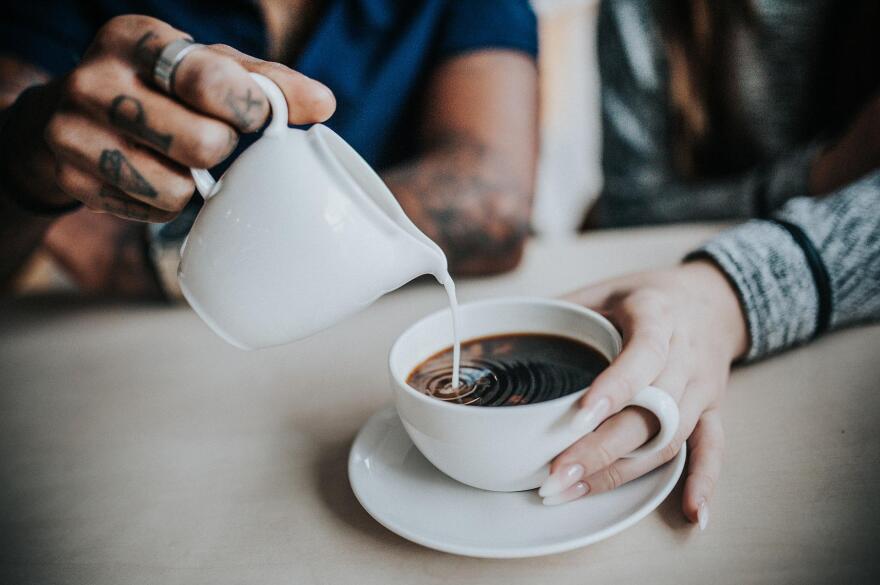Whether it’s hot or iced, black or beige, first thing in the morning or at the start of a late night … most of us drink coffee in some form every day.
But while you might be able to recite your coffee order in your sleep, chances are that you’re less familiar with the science behind its effects on your body and brain.
Host Anita Rao speaks with four people, each with a unique perspective on the science and culture of coffee. Dr. Satish Rao — gastroenterologist and professor of medicine at Augusta University (who also happens to be Anita’s dad!) — discusses what he learned about coffee’s effects on the gut from an experiment he administered in the 1990s. Neuroscientist and science communicator Dr. Shannon Odell explains the effect of coffee on the brain, including how it activates our fight-or-flight response and how it may or may not contribute to brain health.
Rao then shifts her focus to the cultures and communities that have been built around coffee consumption. Samuel Ngwa, who cultivated coffee beans as a child in his home country of Cameroon, shares his experience of learning about American coffee culture as an undergraduate in Wisconsin and how this eventually led him to found Safari Pride Coffee. Austin Jeffries, co-owner of Borough Coffee, discusses the importance of coffee shops as third places and describes the ways he fosters community with his mobile coffee cart.
Thank you to Elie Gardner, Kara Abare, Jacob Moore, Eric Hodge, Daniel Everhart, Hmellisa Mlo, and Bradley George for contributing voice memos to this episode.
Four of your coffee questions answered!
Q: Why does coffee make me poop?
A: “Coffee has many components, including theophylline, which is also a component that is present in tea. Theophylline and caffeine have potent effects on gut motility … they increase gut motility.” -Dr. Satish Rao
Q: Why do I feel jittery after too much coffee?
A: “By caffeine preventing the breakdown of cyclic AMP, you're getting this increase of epinephrine and norepinephrine, aka that fight or flight response. So that's why you feel those caffeine jitters.” -Dr. Shannon Odell
Q: Does coffee dehydrate me?
A: “I don't think it is dehydrating except that if you drink a lot of coffee, then you're going to pee a lot. And indirectly, yes, you may potentially dehydrate yourself, but it doesn't really happen that easily. You have to sweat a lot and or exercise a lot … or have significant vomiting or diarrhea to become dehydrated. Merely drinking excess coffee is unlikely to dehydrate you.” -Dr. Satish Rao
Q: Is caffeine addictive?
A: “Overall, coffee is not addictive, like other drugs of abuse, because it affects your reward system in a slightly different way. It doesn't hijack it quite like something like cocaine or methamphetamine would do to your reward system.” -Dr. Shannon Odell



